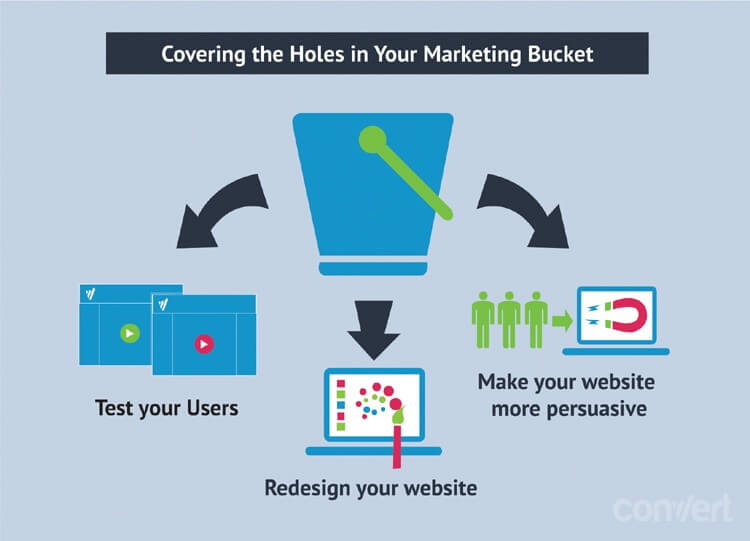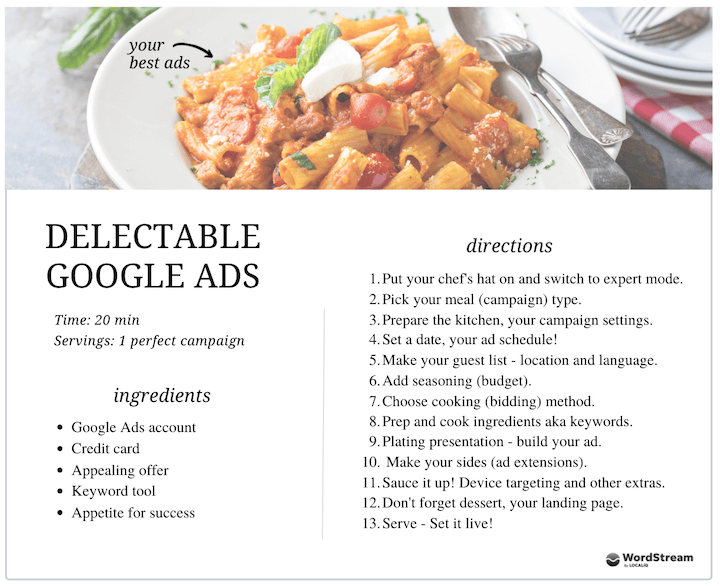In a podcast hosted by Creative Thirst‘s Bobby Hewitt, he talked about ways to cover the holes in your bucket, or in this case, your website. He cites how persuasion, design, testing and data can help plug the holes on your website. But Bobby takes it a step further and explains how these can also help in preventing holes from showing up on your bucket in the future. In summing it up, making your website persuasive will and can only lead to huge successes. Update your site with fresh content at least once in a week and you’ll notice an improvement of the number of monthly visitors. It is easy to do and it doesn’t require too much time. Remember to always test your solutions with real visitors. For more information about conversion optimization, visit us at Convert.
Yes, data from previous engagements can also help in plugging the holes in your website. Data actually shows you what sells and what doesn’t. Having this information can help you prevent what would otherwise be a hole in your bucket. This is also one of the oldest tricks on the book. Marketers, even those before online businesses, have known to learn from the past, and improve by not making the same mistakes.
Plugging The Holes
If you follow these steps, you will notice that your visitors will start converting into customers. When creating a website, every marketer must develop a special strategy that will help him/her design a website that corresponds to the company. If you are not very satisfied with your website’s design, consider redesigning it as quickly as possible. This is very important if you want to attract new visitors and convert them into customers as fast as possible. Every website has some problems, but they need to be fixed completely and immediately.
- Cover the holes in your bucket by making your website more persuasive
- Redesign your website to attract more visitors
- Test your users, it will help you find the right solution
In online marketing, you need to keep bringing new visitors to your website to cover the holes. What is the point of investing into your website if it doesn’t show good results? So, what do you need to do in order to achieve your desired goals?
The most successful marketers will have amassed vast amounts of data on virtually every engagement their client-base has with their organization. This information helps them understand the customer journey, from prospect to client and beyond, and enables them to plan and execute more successful marketing campaigns.
Use Your Data
[Tweet ” An effective design helps to increase awareness, brand name, services and advertisements.”]
Very often, marketers keep investing in a website without realizing how useless it is. Let’s say the bucket is your website; water is the media; and the holes of the bucket as the persuasiveness or usability of the website, (or the lack of it). No matter how much water you pour in, it will only rush out of the hole. Now there are several solutions for this problem. One is to stop pouring the water, which would be death to a website. The other, more acceptable solution would be to plug up the holes. Here’s how.

Every website that hasn’t been updated for more than a year could become useless. It is your duty to make it persuasive enough, because this is the point of having a website. It should help you move your business forward. But first of all, you need to know what the problems are, discuss them with your designer, and meticulously start to eliminate them. In addition, according to an article by John Hayes,





![Should You Use the New Google Ads Insights Page? [Pros and Cons]](https://research-institute.org/wp-content/uploads/2021/05/should-you-use-the-new-google-ads-insights-page-pros-and-cons.jpg)